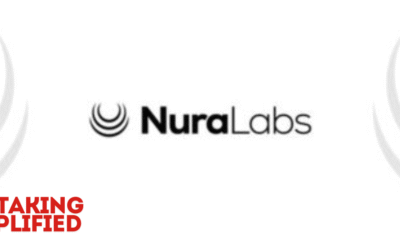Alternative Energy
What Makes a Great Preschool Program?

Choosing the right preschool can feel like a daunting task. With so many options available, how do you know which one will provide the best foundation for your child’s education and development? In this listicle, we’ll break down the key features that define a great preschool program. By the end, you’ll be equipped with the knowledge to make an informed decision.
Qualified and Caring Staff
A great preschool starts with its teachers. Look for programs with qualified, experienced, and nurturing educators. Teachers should hold degrees in early childhood education and possess a genuine passion for working with young children.
Example: According to the National Institute for Early Education Research (NIEER), preschool programs with well-trained and qualified staff positively impact children’s cognitive and social development.
Child-Centered Curriculum
The curriculum should be designed to foster each child’s natural curiosity and love of learning. It should incorporate a mix of structured activities and free play, allowing children to explore and learn at their own pace.
Example: The Creative Curriculum, used in many top preschools, emphasizes hands-on, project-based learning that nurtures children’s intellectual and social-emotional growth.
Safe and Stimulating Environment
Safety is non-negotiable in any preschool program. Classrooms and play areas should be child-proofed and regularly inspected for hazards. Additionally, the environment should be rich with materials that stimulate learning and creativity, such as books, art supplies, and interactive toys.
Tip: Visit the preschool and observe the cleanliness and organization of the classrooms and play areas. A well-maintained environment is indicative of a program that prioritizes children’s well-being.
Strong Family Involvement
Great preschools recognize the importance of family in a child’s education. They encourage regular communication between teachers and parents and offer opportunities for family involvement in school activities and decision-making processes.
Example: Programs like Head Start emphasize parent involvement by holding regular family meetings and providing resources to support learning at home.
Play-Based Learning
Play is the primary way young children learn. Quality preschool programs incorporate play-based learning, where children engage in activities that foster their cognitive, physical, and social skills through play.
Data: A study published in the journal Pediatrics found that play-based learning significantly enhances children’s problem-solving abilities and emotional regulation compared to more academically rigorous approaches.
Social-Emotional Development
Preschool is not just about academics; it’s also a crucial time for social-emotional development. Look for programs that prioritize teaching children how to manage emotions, build relationships, and develop empathy.
Tip: Ask about the preschool’s approach to social-emotional learning (SEL). Programs that use evidence-based SEL curricula, such as Second Step, are often more effective in fostering these skills.
Inclusivity and Diversity
A diverse and inclusive preschool environment exposes children to different cultures and perspectives, promoting acceptance and understanding from an early age. Great preschools celebrate diversity and make every child feel valued and included.
Example: Schools that celebrate cultural holidays, offer bilingual education, and have diverse staff and student populations reflect a commitment to inclusivity.
Small Class Sizes
Smaller class sizes allow for more individualized attention and support for each child. Look for preschools with low student-to-teacher ratios, as recommended by the NIEER.
Data: Research from the National Association for the Education of Young Children (NAEYC) indicates that smaller class sizes are linked to better academic and social outcomes for children.
Conclusion
Choosing a preschool is a significant decision that can set the stage for your child’s future success. Look for programs with qualified staff, a child-centered curriculum, a safe environment, strong family involvement, play-based learning, a focus on social-emotional development, inclusivity, and small class sizes. By prioritizing these features, you can ensure your child receives a high-quality early education that supports their growth and development.
-

 Press Release6 days ago
Press Release6 days agoNura Labs Files Revolutionary Patent: AI-Powered Wallet Solves the $180 Billion Crypto Staking Complexity Crisis
-

 Press Release4 days ago
Press Release4 days agoGlobal Compound Feeds and Additives Industry Report: Market Expansion and Competitive Insights to 2035
-

 Technology3 days ago
Technology3 days agoWhat to Know Before Switching Cell Phone Network Services in 2025
-

 Press Release2 days ago
Press Release2 days agoCrypto WINNAZ Launches First On-Chain Yield Engine for Meme Coins, Enabling 20x–300x Returns














